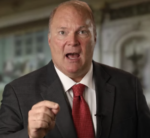Good morning.
Tuesday in Whitewater will be sunny with a high of 33. Sunrise is 7:07 AM and sunset 7:00 PM for 11h 53m 24s of daytime. The moon is a waning gibbous with 56.8% of its visible disk illuminated.
Public Works Committee meets at 6 PM.
On this day in 1794, Eli Whitney is granted a patent for the cotton gin.
Kelly Meyerhofer and Hunter Turpin report Will college voters turn out in Wisconsin Supreme Court race 2023?:
The Gordon Dining Center voting ward on the University of Wisconsin-Madison campus usually draws about 50 voters in spring primary elections.
But this February, 515 voters cast their ballots there, according to turnout data from the city of Madison clerk’s office. Other campus-area voting wards reported similarly high voting rates. A dorm along Lake Mendota reported 39% turnout.
Those are the numbers Democrats are banking on for April 4, when liberal candidate Janet Protasiewicz and conservative candidate Dan Kelly face off in a race that will determine control of the state Supreme Court.
The matchup is already the most expensive state Supreme Court race in U.S. history and carries enormous policy stakes. The race will likely determine the fate of abortion rights, voting rights and legislative maps that have kept Republicans in control of the Legislature for more than a decade.
One replies with an answer and a question: They will turn out, but will this affect down-ballot races? However the Supreme Court race goes, Judge Protasiewicz will carry System campuses decisively. No question there.
The only question is whether that decisive college vote in her favor will influence local, contested races. To achieve a down-ballot result requires industriousness and effective communication. Those traits may be present in some campus communities, but they will not be present in all.
Chicago River Glows Green for St. Patrick’s Day:


